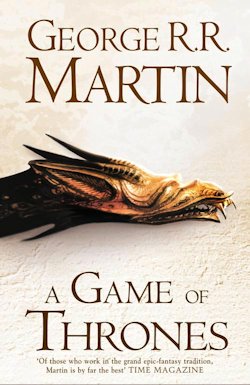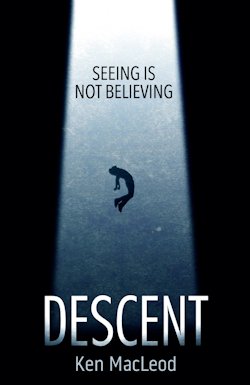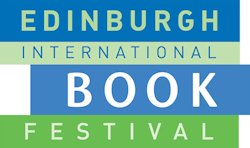Welcome back to the British Genre Fiction Focus, Tor.com’s regular round-up of book news from the United Kingdom’s thriving speculative fiction industry.
We begin today with a look at the fifty bestselling ebooks in the month of June, thanks to a fascinating new feature from The Bookseller. There’s some speculative fiction on the list, but alas, not a lot. That said, the sales breakdown certainly raises interesting questions about the way buyers view and use digital editions. In particular, one genre seems to sell more ebooks than any other, and I can’t help but wonder why that’s the case.
Yesterday, Orbit revealed the cover of Ken MacLeod’s next novel, Descent, with a promise to tell us more about the book closer to its publication in March 2014. Roll on the reveal! But for the time being, I did a little digging. Came up with quite a bit of additional information about Descent, as well…
Last but not least in this week’s British Genre Fiction Focus, with the Edinburgh Fringe Festival in full swing, I thought it was high time we took a look at what the forthcoming International Book Festival has to offer. Starting this Saturday, a bunch of genre authors will be in attendance, including Neil Gaiman, Margaret Atwood, Lauren Beukes and China Miéville—plus there’s a special focus on the graphic novel this year.
Ebook Bestsellers
Last week marked the release of “the first ever e-book chart that includes publisher-supplied volume sales numbers” by way of that bastion of British book news, The Bookseller.
Publishers included in the launch panel are Penguin Random House, Hachette, HarperCollins, Pan Macmillan, Simon & Schuster and Bloomsbury. Together they represent 51% of the overall print book market and 81% of the print book fiction market.
Philip Jones, editor of The Bookseller, said: “Getting accurate sales data for this rapidly growing section of the book market is vital, and we hope the monthly ranking will begin the process of shining a much-needed light on how digital is reshaping the book business. The intention is to quickly grow the panel of publishers.”
Interesting as it is, the resulting chart—which ranks the 50 bestselling ebooks sold during the month of June in the UK—featured, I’m afraid, very little genre fiction. Indeed, to my eye, only one author of genre fiction made the cut.
That said, he did so six times.

No prizes for guessing George R. R. Martin is our man. Almost the entirety of A Song of Fire and Ice featured in this first Top 50, with the inaugural volume, A Game of Thrones, in at number 6, selling a staggering 56,711 copies across print and digital. A Clash of Kings followed in position 22, with 34,067 total sales. The rest of the series—excepting only the second part of A Dance With Dragons—sold enough to warrant positions in the 30s and 40s.
The fascinating thing about all this is that every digital edition of A Song of Ice and Fire was outsold approximately 2:1 by its partner in print.
And here I thought we genre fiction fans were ebook buyers, by and large!
Then again, those buying A Game of Thrones today are at best genre fiction fans in the making…
In any event, this imbalance between the sales of print and digital editions was common across the entire chart. Only twelve ebooks outsold their comparable printed editions, and of those, five (by my reckoning) could be called erotic fiction—including the month’s biggest seller in both formats, in fact; namely the latest Sylvia Day, Entwined With You, which shifted 167,348 units in print and 201,053 digitally.
There’s something to that, surely. Privacy issues, perhaps? Or an idea that certain books are disposable, fit for buyers’ digital libraries but not their literal ones.
All this moves me to moot a quick, yet potentially complex question: are there books that you’d only buy in print, and books that you’d only buy digitally? Why?
One thing is certain, as The Bookseller’s analyst asserts: “E-books simply don’t follow the same sales patterns as printed books.”
A couple of other notable nuggets emerged from the commentary appended to the PDF:
There are […] big differences in terms of e-book market share. [Lee] Child’s latest novel, A Wanted Man, for example, saw only 17% if its total sales in the period come from digital editions. There is a good reason though: the mass-market edition hit shelves at the end of May, meaning in June it was enjoying its strongest sales period (77,700 print sales)—unlike his backlist titles Tripwire (4,000) and Killing Floor (4,400), which hit bookshop shelves many years ago.
Further evidence that e-books simply don’t follow the same sales patterns as printed books can be seen in the comparative sales differences between Child’s three charting novels. The digital edition of A Wanted Man outsold Child’s début novel, Killing Floor, by two e-copies to one in the sale period, but the paperback edition of A Wanted Man outsold Killing Floor by almost 18 to one. There is a frontlist element to print sales that is not matched by digital.
An interesting perspective on the ebook’s typical trajectory, yes?
I’d be looking forward to more ebook breakdowns from The Bookseller, except they want users to pay for the privilege from here on out. And no, I don’t think so; I’ve got ebooks to buy, by Jove!
A Sceptic’s Descent
As well as being shortlisted for the Arthur C. Clarke Award, Ken MacLeod’s latest book, Intrusion, was nominated for Best Novel by the BSFA. It was, indeed, a great read, and I can only hope MacLeod’s next is similarly brilliant. As revealed on Orbit’s blog yesterday, it’s called Descent, and it’s coming in the first quarter of 2014.

The cover art, at a glance, is rather unremarkable, but the shoutline—Seeing is Not Believing—says a whole bunch about the book. With reference to Intrusion as a “genomics Aga Saga,” the author describes Descent as “near-future bloke-lit”:
Bloke-lit’s the kind of [fiction] Nick Hornby and Tony Parsons do so well: a first-person, confessional tale of an ordinary guy who behaves with typical male insensitivity and self-absorption until at least one exasperated woman-in-his-life knocks him about the head with some home truths. In Descent the narrator’s excuse for being such a dick is that in his teens he got knocked on the head by a flying saucer. Also, he suspects the revolution may have happened while he was studying for his final high school exams. When his girlfriend tells him he and she may be from different human species, relationships become strained. We’ve all been there.
A quick Google of Goodreads revealed these additional tidbits:
The novel I’m working on, provisionally titled Descent, features a UFO encounter, albeit one that (even as a teenager, when it happens to him) the protagonist doesn’t attribute to aliens. It also features a revolution, albeit one so peaceful and legal that most people don’t notice it as such at the time. Unlike my previous stories, Descent takes on board the UFO experience as it exists in the real world, rather than elaborating an ironic rationalisation of the UFO mythos. Part of its inspiration was a review in Fortean Times of Mark Pilkington’s well-received Mirage Men, a book which I’ve since read and found very useful indeed. Pilkington shows that the story of a government cover-up of the truth about UFOs—the standard X-files trope—is itself a government creation, and is quite deliberately kept going by various governments and intelligence agencies.
I’m a sceptical sort myself, but after fourteen frequently awesome novels, I have a fair amount faith in Ken MacLeod. Descent is pencilled in for publication in the UK next March, and you can bet your conspiracy theories I’ll be reading it.
Edinburgh International Book Festival
With the Edinburgh Fringe Festival in full swing, I thought it was high time we took a look at what the forthcoming International Book Festival has to offer.
The fun starts this Saturday, but the first event of potential interest to genre fiction fans isn’t due till Tuesday, when Baroness Susan Greenfield, author of the critically drubbed 2121, meets with The Disappearances’ Gemma Malley to discuss dystopia.
On Saturday 17th August, Francis Hardinge talks with festival favourite China Miéville about “the challenges and rewards of taking readers to unknown lands.” Read all about it here.
By and large, however, the speculative events are gathered together over the course of one weekend, if we agree that the weekend starts on Friday and ends on Monday… which it doesn’t, but indulge me.
If you can only come once, Friday 23rd August looks like the best day to visit the city. In the afternoon, Samantha Shannon, author of The Bone Season, will be in conversation with James Smythe, the mind behind The Machine. Then, later that evening, Ben Aaronovitch, Steve Cole and Justin Richards are getting together to talk Doctor Who, the better “to celebrate 50 years of the BBC TV series,” meanwhile Lauren Beukes and Mikhail Shishkin consider the novel as a time machine, because although “The Shining Girls and […] The Light and the Dark are wildly different books, each is built around characters whose lives come together despite being separated by time.”
Ben Aaronovitch is back for a second event that Saturday, paired in this cast with London Falling’s Paul Cornell. Then on Sunday, leading writers pay tribute to Iain Banks: “In this celebratory event, three of his close literary friends, Ken MacLeod, Val McDermid and Ian Rankin, discuss the work of a Scottish literary legend.” It’s already sold out, sadly, or I know I’d be going.
Same goes for the last event of speculative interest—a head-to-head that’s set for the afternoon of Monday 26th August, the final day of the festival:
Margaret Atwood and Neil Gaiman each have legions of readers across the world. They are both on a fearless mission to cross traditional literary boundaries, producing sci-fi, graphic novels, literature and children’s books without hesitation. In this unique and unmissable event, Queen Margaret and King Neil share stories about how they weave words together to tell electrifying stories.
Fans of the graphic novel will be better catered to, to be sure. Leading four pages of events compared to science fiction’s one, there are events with Chris Ware, Joe Sacco, Grant Morrison, Kieron Gillen, Bryan Talbot and Denise Mina. Neil Gaiman, Lauren Beukes and Paul Cornell will also be back to talk comics.
And that’s the Edinburgh International Book Festival for 2013!
Anyone else have plans to attend? Let me know and I’ll tell you where they pull pints of the best ales you’ve never tasted.
On that appropriately alcoholic note, the time has come to close out this edition of the British Genre Fiction Focus. I’ll be back again next Wednesday with another round-up of book news from the kingdom of the Fringe. In the interim, why not continue the conversation in the comments?
Niall Alexander is an erstwhile English teacher who reads and writes about all things weird and wonderful for The Speculative Scotsman, Strange Horizons, and Tor.com, where he contributes a weekly column concerned with news and new releases in the UK called the British Genre Fiction Focus, and co-curates the Short Fiction Spotlight. On occasion he’s been seen to tweet, twoo.










